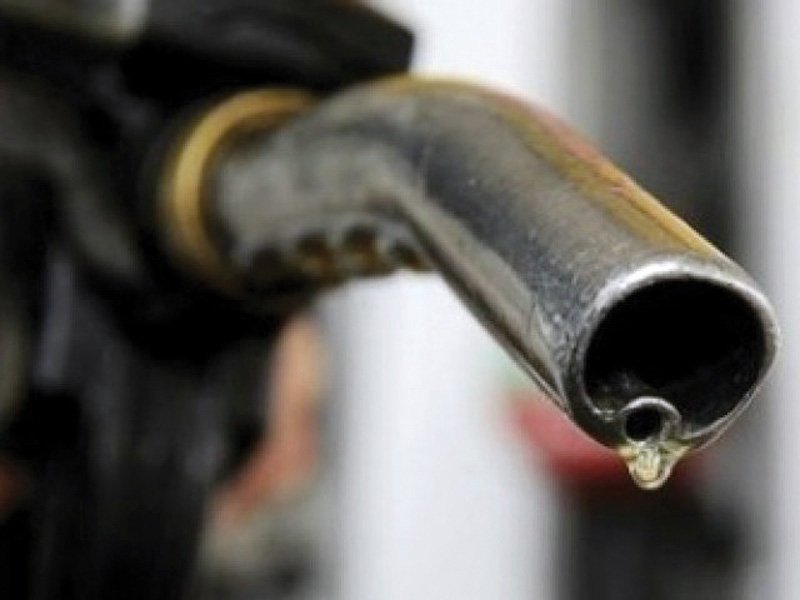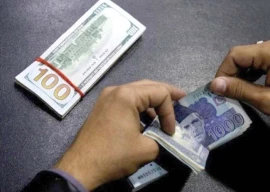
For oil crisis: Petroleum Division, OGRA refuse to take blame
Pass responsibility onto each other to ensure OMCs keep 20 days of stocks
ISLAMABAD: With the country witnessing an oil crisis amid the Covid-19 pandemic, the Petroleum Division and the Oil and Gas Regulatory Authority (Ogra) have passed the buck on to each other for forcing oil marketing companies (OMCs) to keep 20 days of oil stocks, which has perturbed government functionaries.
Under licensing conditions, OMCs are bound to maintain oil stocks for 20 days to meet demand in case of any emergency. However, during the recent crisis, some OMCs hoarded fuel products whereas others failed to keep stocks for 20 days, which led to a prolonged oil crisis in the country.
Sources told The Express Tribune that cabinet members in a recent meeting took up the matter and inquired who was responsible for ensuring OMCs kept oil stocks for 20 days.
Special Assistant to Prime Minister on Petroleum Nadeem Babar told the meeting that the regulator was to ensure that oil stocks were maintained for 20 days.
However, Ogra Chairperson Uzma Adil said under the Ogra Marketing Rules 2016 the authority was only responsible for the development of storage infrastructure whereas determining the supply and demand of petroleum products was the function of Petroleum Division.
She said the Petroleum Division called a product review meeting every month to determine the supply and demand situation, in which Ogra also participated.
At present, enforcement measures were being carried out jointly. Cabinet members expressed their dismay over the performance of both the Petroleum Division and Ogra, noting that both the entities should have performed their role mandated by relevant laws and rules.
The cabinet noted that Ogra and the Petroleum Division had legal authority to physically enter and inspect storage facilities of oil companies. The cabinet expressed extreme disappointment over petroleum shortage in the country, which took shine off government’s recent decision to pass the impact of sharply lower international fuel prices on to consumers.
The special assistant to the prime minister on petroleum explained that the existing price determination mechanism for regulated petroleum products was such that it worked well when international prices were stable but failed during periods of volatility. The reason behind that was the monthly price indexation with Pakistan State Oil’s (PSO) fuel purchase prices. A lag of 30 to 45 days resulted in inventory losses for the OMCs.
A proposal to change the existing mechanism was being submitted to the Economic Coordination Committee (ECC), under which prices would be determined fortnightly by using the Platts Index.
However, the cabinet did not agree with the explanation, saying OMCs were more than happy to pocket windfall gains when oil prices were high but were reluctant to bear losses when prices went down.
Under the terms of contract, the OMCs were bound to keep 20 days of petroleum stock, which they apparently failed to maintain.
The cabinet members expressed concern, asking why timely remedial measures were not taken when the Petroleum Division had ostensibly realised looming shortage in mid-May. They called for fixing responsibility for the shortage.
PM aide Babar clarified that against supply of 650,000 metric tons in June 2019, the availability of 850,000 MT was ensured at present through 40% increase in imports by PSO.
However, an unexpected surge in demand was witnessed, which could be due to the relaxation in lockdown or because of panic buying, but exact reasons for the shortage were being determined. Nevertheless, administrative measures against possible hoarding by either OMCs or petrol filling stations were being taken.
Published in The Express Tribune, June 19th, 2020.
Like Business on Facebook, follow @TribuneBiz on Twitter to stay informed and join in the conversation.















COMMENTS
Comments are moderated and generally will be posted if they are on-topic and not abusive.
For more information, please see our Comments FAQ